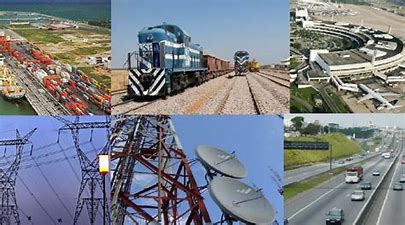One of the goals is to develop hybrid cars and develop local sourcing of parts
07/07/2022
/i.s3.glbimg.com/v1/AUTH_37554604729d4b2f9f3eb9ad8a691345/internal_photos/bs/2022/Z/O/38MpqtQVOBWuX8pogRjg/190522antoniofilosa13.jpg)
Antonio Filosa — Foto: Alexandre Campbell / Valor
Stellantis’s procurement team in Brazil has had a lot of work lately. The automaker corporation that unites Fiat, Chrysler, Peugeot and Citroën needs to advance in negotiations with suppliers to meet two priorities defined by the company’s CEO in Latin America, Antonio Filosa. One part of the conversation involves development projects for the production of hybrid cars in Brazil. The other seeks to increase the local sourcing of parts, especially electronic components, to reduce dependence on foreign countries, especially in Asia.
Mr. Filosa, one of the greatest advocates of Brazil using its knowledge of ethanol to produce hybrid cars, does not reveal dates. But he said that the process of developing new versions of the so-called powertrain of the brand’s cars will begin in Betim (Minas Gerais state), where the company currently has an important production center for combustion engines.
According to Mr. Filosa, Stellantis has engineering and product development teams around the world that are currently working to find solutions to reach the company’s goal of reducing CO2 emissions by 50% by 2030. The Brazilian team was assigned the mission of developing the ethanol hybrid. “We are the only ones in the world capable of developing this technology,” he says.
Stellantis’s position clashes with that of General Motors, which, according to Santiago Chamorro, CEO for South America, in an interview with Valor this week, said he intends to offer in the Brazilian market only 100% electric cars, which depend on charging at charge points. The hybrid, on the other hand, has two engines – a combustion one that helps charge the other, electric – and, therefore, dispenses the batteries charging in electric power sources.
“We will offer the customer whatever he wants, including 100% electric cars. But we will have, locally, the electrification with ethanol, a clean solution since the sugar cane plantation. This is Brazil’s chance to electrify its vehicles without damaging the industry,” Mr. Filosa said. For now, all 100% electric cars are imported.
Stellantis’ goal is to reach 2030 with electric cars in 100% of sales in Europe, 50% in the United States, and 20% in Brazil.
For Mr. Filosa, ethanol “is a very Brazilian answer,” on the transportation side, to the decarbonization process. The rest, he says, is possible through reforestation. “These are simple solutions. We already have ethanol for cars and reforesting a country where it rains a lot is easy. Here is not Dubai,” he affirms.
Stellantis’s second move in negotiations with suppliers has two more fronts. In one of them, it seeks to reduce dependence on imported parts. In recent times, the automotive industry has had to face supply problems due to several factors, ranging from the strong recovery in global demand that followed the peak of the pandemic, to the war in Ukraine, followed later by the lockdowns in China.
Without naming, Mr. Filosa says that a new Asian supplier has already started to manufacture in Manaus components for the navigation and entertainment system of the cars produced by the automaker in the country.
Along the same lines as the expansion of domestic production, Stellantis’s management seeks to attract more suppliers to its plants, especially the one in Goiana, Pernambuco, which currently has 30 suppliers in the surrounding area. By 2025, the company that a year and a half ago became a super-automaker, with the global merger of several brands, has become the leader of the Brazilian market, with 33.6% of sales of cars and light commercial vehicles in the first half of the year. In Brazil alone, the company has three industrial complexes and an engine plant.
“Brazil needs to industrialize more and more to guarantee work and income. If today 65% of the market is in the Southeast and South regions, it is not because consumers in the North and Northeast don’t want or don’t need cars. It is because of the lack of income,” the executive said. For him, industrial decentralization also helps to improve the country’s social indicators, such as education and security.
About the restrictions on the foreign exchange market in Argentina, where Stellantis has two vehicle plants, Mr. Filosa, who was once Fiat’s CEO in Argentina, says the company is analyzing the situation “to understand the impacts.” “We don’t expect, of course, that there will be zero impact,” he says.
Regarding the Brazilian market, the executive says that the pressure of inflation and the high-interest rates worry. But this, he highlights, does not show up in sales yet because the lack of components is a major problem. “For now, the crisis is of supply.” Therefore, for him, the market this year tends not to present growth compared to 2021.
*By Marli Olmos — São Paulo
Source: Valor International

/i.s3.glbimg.com/v1/AUTH_37554604729d4b2f9f3eb9ad8a691345/internal_photos/bs/2022/S/q/k3uWT2TMeTd0gpuIx8Jg/07emp-100-portos-b1-img02.jpg)
/i.s3.glbimg.com/v1/AUTH_37554604729d4b2f9f3eb9ad8a691345/internal_photos/bs/2022/I/2/pcMsxMRLWkOMnUg5WYcA/cristiane-nogueira-and-emmanuel-guinet-divulgacao.png)

/i.s3.glbimg.com/v1/AUTH_37554604729d4b2f9f3eb9ad8a691345/internal_photos/bs/2022/l/M/BvuTv7SFai5Kd7clK7fw/020622bbdtvm07.jpg)
/i.s3.glbimg.com/v1/AUTH_37554604729d4b2f9f3eb9ad8a691345/internal_photos/bs/2022/m/Y/6Mr1aeSiygrXidOs7SvA/05emp-100-vibra-b3-img01.jpg)
/i.s3.glbimg.com/v1/AUTH_37554604729d4b2f9f3eb9ad8a691345/internal_photos/bs/2022/D/7/sLInDQQ56FFDg7M035QQ/weg-divulgacao-weg.png)
/i.s3.glbimg.com/v1/AUTH_37554604729d4b2f9f3eb9ad8a691345/internal_photos/bs/2022/H/j/RZIpm4REWqBA2BBRpQCA/05emp-100-gm-b4-img01.jpg)
/i.s3.glbimg.com/v1/AUTH_37554604729d4b2f9f3eb9ad8a691345/internal_photos/bs/2021/B/A/8KOeBXTb2zMhSjPvlYpw/190612-bmf-bovespa-50.jpg)
/i.s3.glbimg.com/v1/AUTH_37554604729d4b2f9f3eb9ad8a691345/internal_photos/bs/2022/y/5/OSblHFQNKe43k1pjpLAA/04emp-100-higer-b3-img01.jpg)